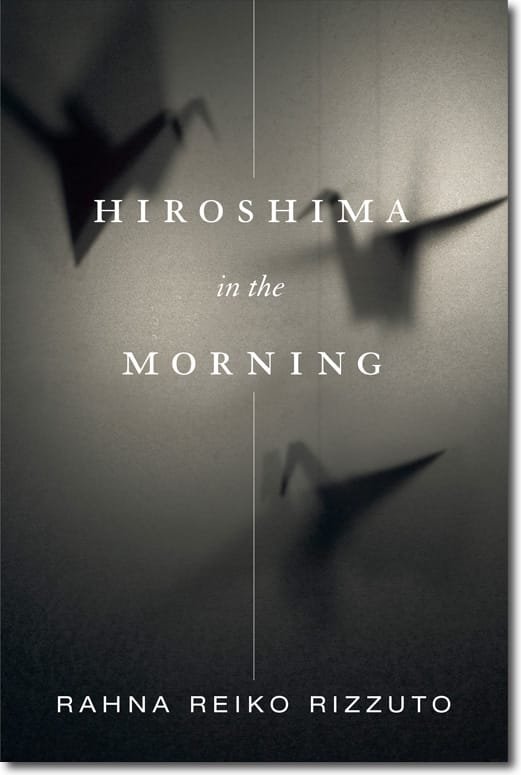
National Book Critics Circle award Finalist
It won’t be the facts as they happened exactly, each day, each footstep, each breath. Time elides, events shift; sometimes we shift them on purpose and forget that we did. Memory is just how we choose to remember.
We choose.
National Book Critics Circle Finalist
Grub Street National Book Award Winner
Asian American Literary Award Finalist
Dayton Literary Peace Prize Nominee
order from Feminist Press | IndieBound | Amazon | Barnes & Noble
hiroshima in the morning
In June 2001, Rahna Reiko Rizzuto went to Hiroshima in search of a deeper understanding of her war-torn heritage. She planned to spend six months there, interviewing the few remaining survivors of the atomic bomb. A mother of two young boys, she was encouraged to go by her husband, who quickly became disenchanted by her absence.
It is her first solo life adventure, immediately exhilarating for her, but her research starts off badly. Interviews with the hibakusha feel rehearsed, and the survivors reveal little beyond published accounts. Then the attacks on September 11 change everything. The survivors’ carefully constructed memories are shattered, causing them to relive their agonizing experiences and to open up to Rizzuto in astonishing ways.
Separated from family and country while the world seems to fall apart, Rizzuto’s marriage begins to crumble as she wrestles with her ambivalence about being a wife and mother. Woven into the story of her own awakening are the stories of Hiroshima in the survivors’ own words. The parallel narratives explore the role of memory in our lives, and show how memory is not history but a story we tell ourselves to explain who we are.
History
Research
writing memoir
Book club guides
If your book club is reading Hiroshima in the Morning, let me know! I am happy to talk to you via Skype or in person if you are near me. Or send me five questions, and I will answer them.
Here is the book club info.
Here is the teachers’ guide.
